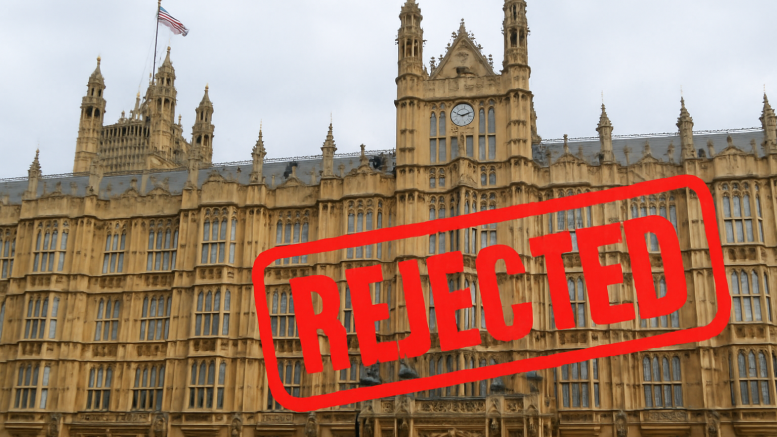MPs have rejected most House of Lords amendments to the Renters’ Rights Bill, clearing the way for the legislation to reach Royal Assent. During a heated debate on Monday 8 September, ministers insisted the Bill must pass swiftly, while landlords warned the reforms risk forcing investors out of the private rented sector.
Ministers press ahead with abolition of Section 21
Housing minister Matthew Pennycook defended the government’s stance, reiterating his claim that Section 21 “no-fault” evictions are a leading cause of homelessness-despite official statistics showing otherwise. He told MPs: “This Bill must receive Royal Assent as soon as possible… renters across the country need the Bill on the statute book.”
Pennycook confirmed that all fixed-term tenancies will automatically convert to periodic agreements once the Bill becomes law. He also pledged to work with “tenants, landlords and agents” to ensure a smooth transition, but offered little detail on how landlord concerns over repossession rights or court delays would be addressed.
For landlords, the key point remains the removal of Section 21 without meaningful court reform. “The abolition of Section 21 without fixing the broken court system is like ripping the brakes off a car,” said Paul Johnson, a Manchester landlord with four properties. “It leaves us exposed if tenants stop paying rent.”
Opposition warns of shrinking private rented sector
Conservative Shadow Housing Secretary James Cleverly described the Bill as “entirely counterproductive” and accused ministers of deliberately undermining landlords.
He said: “The Bill risks driving private landlords out of the sector, reducing the supply of private rented accommodation and pushing up rents.”
Industry voices echoed this concern. Marc von Grundherr, director of Benham and Reeves, argued that “the vast majority of landlords are honest, hard-working individuals” and said demonising them was “misleading” and risked further destabilising supply at a time when rental stock is already critically short.
Sian Hemmings-Metcalfe, Operations Director at Inventory Base, warned only “one in six landlords are ready for the RRB,” adding: “Unless Parliament delivers clarity now, uncertainty will harden into paralysis across the rental sector.”
Rejected amendments leave landlords frustrated
Peers had attempted to soften some measures. An amendment allowing landlords to re-let within six months if a property sale collapsed was narrowly backed in the Lords, but the Commons overturned it-keeping the 12-month re-letting ban.
Another proposal to allow landlords to require a separate pet damage deposit of up to three weeks’ rent was also rejected. Pennycook argued this would cost the average tenant “over £900” and insisted the existing five-week cap was sufficient, despite widespread landlord opposition.
Meanwhile, the government introduced its own amendment granting landlords a three-month eviction window if possession notices are served before the Bill becomes law. In a controversial move, purpose-built student accommodation will also be exempt from the new rules, allowing fixed-term tenancies to continue.
What landlords need to know
With the Renters’ Rights Bill moving towards Royal Assent, landlords face a new rental landscape. Here are the key changes and their implications.
Section 21 to be abolished
- All fixed-term tenancies will automatically become periodic.
- Landlords will need to rely on possession grounds through the courts, raising concerns over lengthy delays and enforcement issues.
- No-fault evictions will no longer be available, making robust tenancy agreements more important than ever.
Rejected landlord protections
- The Commons overturned a Lords amendment that would have reduced the re-letting ban from 12 months to six months if a property sale collapsed. Landlords must now wait the full year.
- A proposal for an additional pet deposit of up to three weeks’ rent was also rejected. Landlords will have to rely on the existing five-week cap under the Tenant Fees Act 2019.
New landlord obligations
- Tenancies with pets cannot be refused without valid grounds, though landlords can still require pet insurance.
- Councils will gain new powers to inspect properties without prior notice.
- The Decent Homes Standard will apply to all private rentals, bringing additional compliance checks.
Limited landlord concessions
- Government amendments give landlords three months to evict if possession notices are served before the Bill becomes law.
- Purpose-built student accommodation is exempt, meaning fixed-term tenancies remain possible in that sector.
Editor’s view
The Renters’ Rights Bill looks set to pass largely unchanged, leaving landlords with tighter obligations and fewer protections. Ministers promise a “smooth transition,” but the reality is a private rented sector already stretched by high costs and dwindling supply. The question now is whether Westminster has prioritised political headlines over practical housing policy-and how many landlords will choose to walk away as a result.







